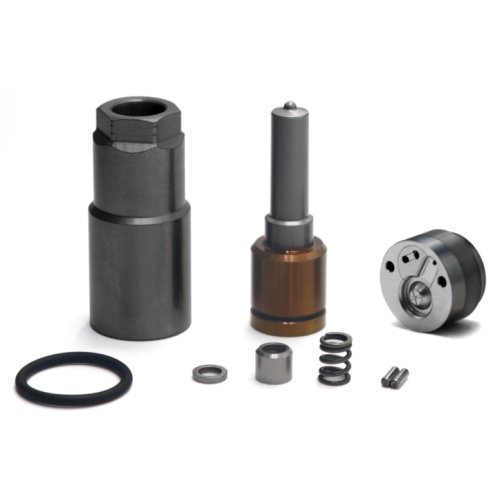Diesel engines are a popular choice for many vehicle owners, as they tend to be more reliable and fuel-efficient than gasoline engines. However, diesel injectors are a key component of the engine. Without them, the engine will not work properly and you can expect poor performance from the vehicle. In this blog post, we will discuss some of the factors to consider when using diesel injectors. We will look at what makes diesel injectors different from other fuel delivery systems, how to maintain them properly, and how to identify any signs of wear and tear that may occur over time. By understanding these factors, you can ensure your vehicle runs efficiently and reliably for years to come.
What is a Diesel Injector?
Diesel injectors are responsible for delivering fuel to the engine. They are designed to withstand the high pressures and temperatures that are characteristic of diesel engines.
Diesel injectors work by opening and closing at very high speeds in order to create a finely atomized spray of fuel that can be easily combustible. Injectors must be able to withstand the wear and tear that comes with this constant opening and closing, as well as the corrosive effects of diesel fuel.
Diesel injectors are a vital part of a diesel engine and must be properly maintained in order to keep the engine running smoothly. Factors such as proper fuel delivery, injection timing, and injector pressure must be taken into consideration when using a diesel injector.
How Does a Diesel Injector Work?
A diesel injector is a device that helps deliver fuel to a diesel engine. The purpose of the injector is to meter the precise amount of fuel needed for each cycle of the engine. Injectors are located in the cylinder head and inject fuel directly into the combustion chamber.
Diesel engines are compression-ignition engines, meaning that they rely on compression to ignite the fuel rather than using a spark plug. When the air inside the cylinder is compressed, it heats up and causes the fuel to combust.
The timing of the injector is critical because it needs to deliver the right amount of fuel at exactly the right time. If too much fuel is injected, it can cause engine knock or damage to the pistons and cylinders. If not enough fuel is injected, the engine will run lean and may not have enough power.
Types of Diesel Injectors
There are four types of diesel injectors: plunger, solenoid, piezoelectric, and common rail.
Plunger injectors have a simple design and are the most common type of injector used in small engines. Solenoid injectors are more complex, and are often used in larger engines. Piezoelectric injectors are the most advanced type of injector, and are often used in high-performance engines. Common rail injectors are the newest type of injector, and are becoming increasingly popular due to their improved performance and fuel economy.
Pros and cons of Using a Diesel Injector
There are several factors to consider when deciding whether or not to use a diesel injector. The pros of using a diesel injector include the fact that they are very efficient and can help improve fuel economy. Additionally, diesel injectors can help to reduce emissions. The cons of using a diesel injector include the fact that they can be expensive to maintain and may require special care when cleaning.
How to Properly Care for Your Diesel Injector
To keep your diesel injector in good working condition, it is important to follow a proper care routine. Here are some tips on how to properly care for your diesel injector:
-Inspect the injector regularly for any signs of wear or damage.
-When cleaning the injector, be sure to use only clean and dry rags.
-Do not use any harsh chemicals or solvents on the injector.
-Be sure to lubricate the O-rings on the injector with a light coat of oil before reassembly.
-If the injector needs to be removed, be sure to have a qualified technician do it.
Conclusion
Diesel injector systems are an important part of modern diesel engines. When properly maintained, they can provide reliable and efficient performance for years to come. It is important to understand the factors that need to be taken into consideration when using a diesel injector system, such as fuel type, injection pressure, and nozzle size. By understanding these factors and taking them into account when choosing a diesel injector system or carrying out maintenance on one, it is possible to ensure optimum performance from your engine.

